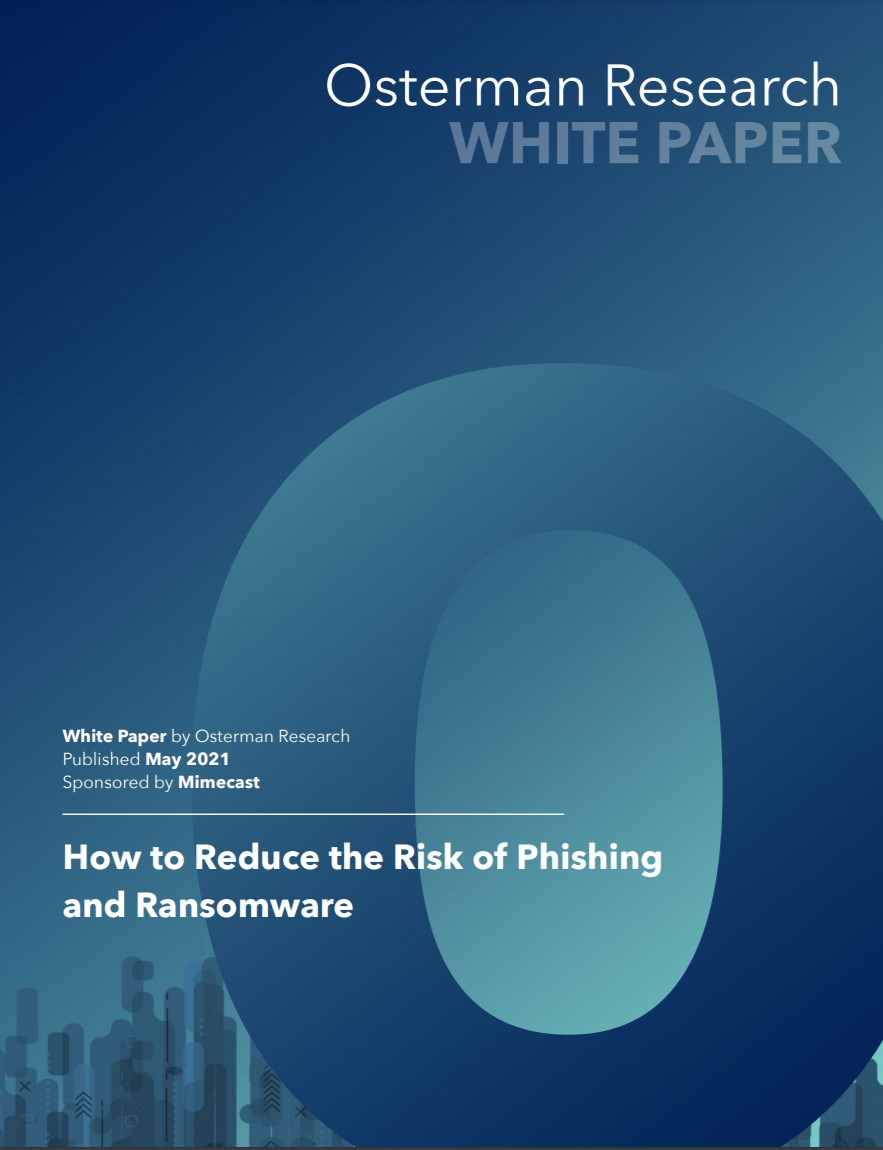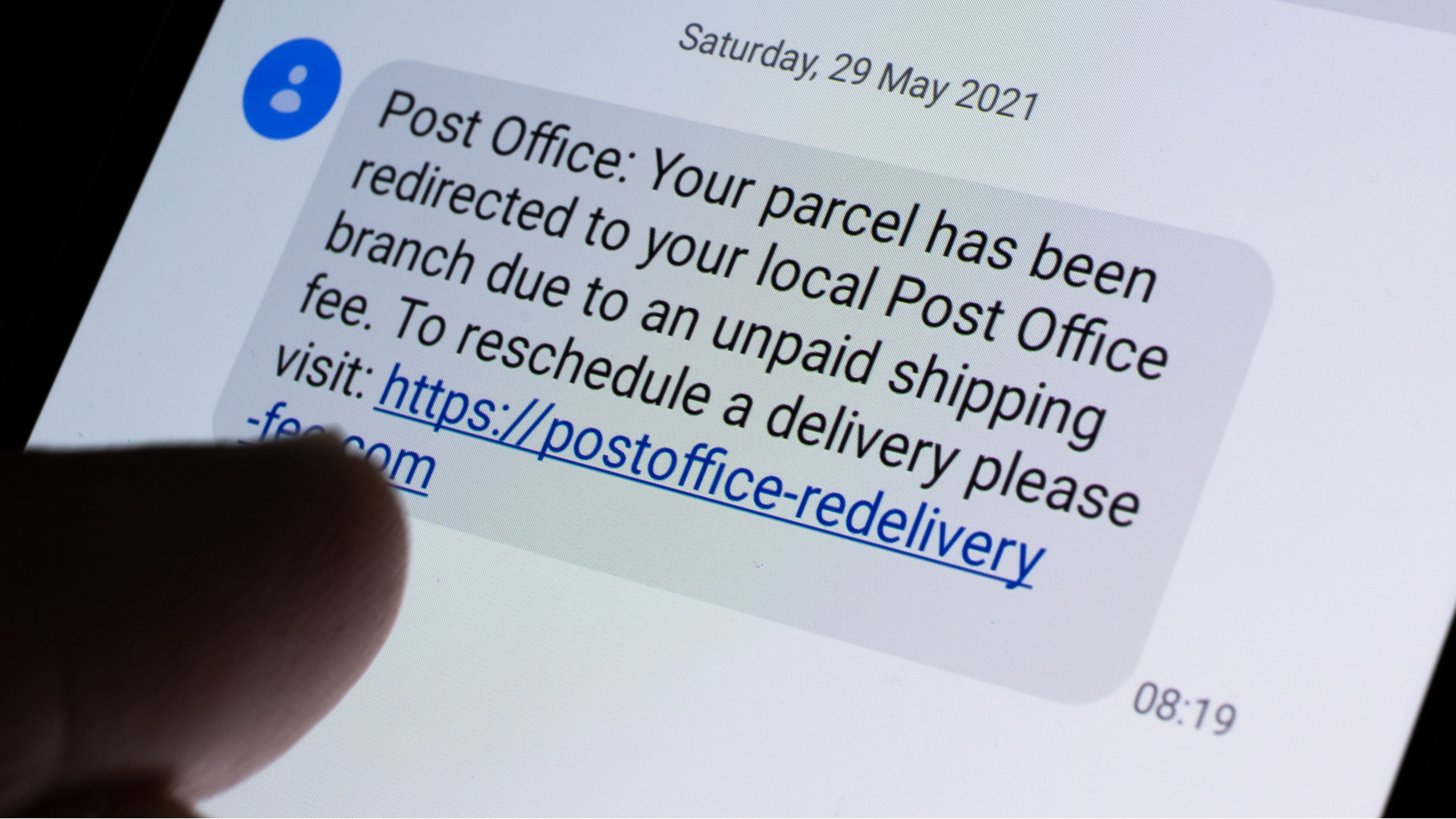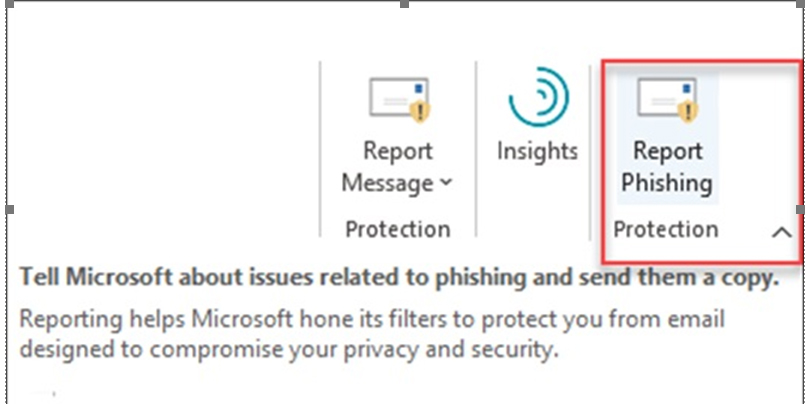Delivery scams become most common form of smishing
Cyber security provider Proofpoint finds a major increase in the number of threat actors impersonating postal services


Parcel and package delivery scams now constitute more than half of all reported text phishing, or 'smishing', attempts in the UK, as remote working increases consumers’ and businesses’ reliance on postal services.
That's according to new data published by trade association UK Finance, with the findings attributed to cyber security provider Proofpoint.
The company found that, between 15 April and 14 July 2021, 53.2% of all reported scam text messages were sent by threat actors posing as postal delivery firms.
Data collected by Proofpoint also shows that the trend of impersonating postal services such as the Royal Mail is on the rise. Between 14 June and 14 July, parcel and package delivery scams constituted 67.4% of all smishing attempts.
By contrast, impersonating financial services and banks is becoming less prevalent, falling from 36.8% between 15 April and 14 July to only 22.6% for the 30-day period up to mid-July.
According to Sarah Lyons, NCSC deputy director for Economy & Society, Proofpoint’s findings prove that scammers choose to “regularly exploit well-known, trusted brands for their own personal gain” and that these messages “can be very hard to spot”.
RELATED RESOURCE

How to reduce the risk of phishing and ransomware
Top security concerns and tips for mitigation
“If you think you've already responded to a scam, don't panic. Whether you were contacted by text message, email or phone, there's lots you can do to limit any harm,” she said, adding that people should forward scam messages to to 7726 as well as visit www.cyberaware.gov.uk “for more information on how to protect your online accounts and devices”.
Get the ITPro daily newsletter
Sign up today and you will receive a free copy of our Future Focus 2025 report - the leading guidance on AI, cybersecurity and other IT challenges as per 700+ senior executives
McAfee VP Antony Demetriades told IT Pro that Proofpoint’s findings are symptomatic of the mass shift to remote working:
“Following nearly 18 months of lockdowns, working from home, and store closures, it’s not surprising that we’ve seen an increase in online criminals tapping into consumer online shopping habits with fake parcel delivery scams.
"Scams and fraudulent emails and texts are a common tactic used by online criminals, as it enables them to target a large number of consumers with the same text or email, with the aim of gathering personal information. These fake parcel delivery scam messages can trick consumers into visiting malicious websites that can be used to install malware or steal personal or financial information and passwords,” he said, adding that “it's also important to remember that official organisations will never ask for personal or financial information via text, phone or email”.
“If you witness this, it’s always best to contact the organisation directly or report it to Action Fraud online at actionfraud.police.uk or by calling 0300 123 2040,” he said.
Having only graduated from City University in 2019, Sabina has already demonstrated her abilities as a keen writer and effective journalist. Currently a content writer for Drapers, Sabina spent a number of years writing for ITPro, specialising in networking and telecommunications, as well as charting the efforts of technology companies to improve their inclusion and diversity strategies, a topic close to her heart.
Sabina has also held a number of editorial roles at Harper's Bazaar, Cube Collective, and HighClouds.
-
 Bigger salaries, more burnout: Is the CISO role in crisis?
Bigger salaries, more burnout: Is the CISO role in crisis?In-depth CISOs are more stressed than ever before – but why is this and what can be done?
By Kate O'Flaherty Published
-
 Cheap cyber crime kits can be bought on the dark web for less than $25
Cheap cyber crime kits can be bought on the dark web for less than $25News Research from NordVPN shows phishing kits are now widely available on the dark web and via messaging apps like Telegram, and are often selling for less than $25.
By Emma Woollacott Published
-
 C-suites consider quantum a serious threat and "amazing" deepfake attacks are just 'months away'
C-suites consider quantum a serious threat and "amazing" deepfake attacks are just 'months away'News Deepfake technology has matured at a rapid rate, and video scams are likely to be a on par with the more convincing voice-only campaigns very soon, one expert says
By Rory Bathgate Published
-
 Shiseido reportedly suffers data breach
Shiseido reportedly suffers data breachNews The Japanese cosmetics company has been accused of failing to notify affected staff of the leak
By Sabina Weston Published
-
 Almost a quarter of all spam emails were sent from Russia in 2021
Almost a quarter of all spam emails were sent from Russia in 2021News Last year's spam emails mostly centred around money and investment, Bond and Spider-Man movie premieres, and the pandemic
By Sabina Weston Published
-
 HMRC issues scam warning ahead of Self Assessment deadline
HMRC issues scam warning ahead of Self Assessment deadlineNews The department stated that 2021 has already seen 797,010 tax-related scams reported
By Sabina Weston Published
-
 Ofcom report reveals alarming uptick in smishing attacks
Ofcom report reveals alarming uptick in smishing attacksNews Text-based scams now more common than phone calls among young adults
By Sabina Weston Published
-
 Smishing attacks increased 700% in first six months of 2021
Smishing attacks increased 700% in first six months of 2021News Which? has urged businesses to play their part to protect people from text message scams
By Sabina Weston Published
-
 NCSC simplifies Outlook scam-reporting tool
NCSC simplifies Outlook scam-reporting toolNews Users are now able to report phishing emails with just one click
By Sabina Weston Published
-
 British man 'PlugWalkJoe' arrested in Spain over 2020 Twitter hack
British man 'PlugWalkJoe' arrested in Spain over 2020 Twitter hackNews Joseph James O'Connor is also accused of hijacking TikTok and Snapchat user accounts, as well as cyberstalking a juvenile
By Sabina Weston Published